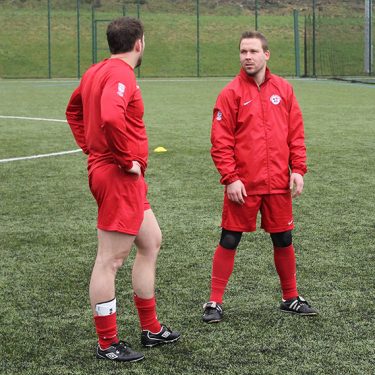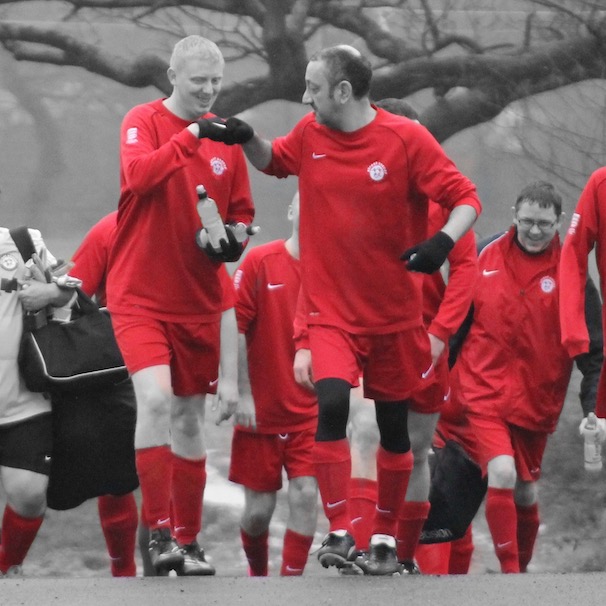The Theory Behind the Practice, Part Two
‘The Poverty Factor’
When working with people who have multiple and highly complex needs it is important to understand how they have arrived at the point they are currently at when they present themselves to us. Everyone is different and each case is unique but recognizing the main contributing factors that can cause a situation of crisis in someone’s life assists not only in helping address current issues but in preventing other factors also becoming prevalent and creating an even more complex web of challenges.
The three main contributing factors that appear to exist that can cause a situation of crisis in someone’s life are in relation to poverty. Not simply a shortage of money, employment or practical necessity, but a general lack of important pro-social content and input into their lives.
Factors that must be addressed:
1. Material Factors
The current economic climate in which we live offers a lack of affordable housing to those relying on a shrinking benefit system and those who are employed but are on low incomes. A lack of income yet rising utility bills, food prices, childcare costs and further education costs means there is less insulation against the problems of life. More people than ever are in danger of hitting a point of crisis, including those who are in employment with many searching for second jobs to supplement the low wages they currently receive. This inevitably has a knock-on consequence on the quality of their relationships as they only have a finite amount of time to offer to others (including their families) outside of work.
There are fewer safety nets in place than there ever has been before meaning a sudden change in circumstances can result in a situation of crisis. A lack of savings means a sudden change in your financial fortunes can result in a need for the most basic necessities in life such as food and shelter. We have found this to be commonplace in our environments as we assist people into work. Simply being employed does not remove the material factor quandary.
The average age of men relying on the support of Street Soccer Academy has typically been 18-25 year olds but recent trends have shown an increase of people in their thirties and forties becoming reliant on our support. In many cases this means the effects of the ‘material factor’ goes beyond the male beneficiary and impacts secondary beneficiaries including their families, meaning female adults and children must also be considered from a support point of view.
2. Relationship Factors
There appears to have been a shift in society from duty and commitment to choice and freedom when it comes to relationships. This has resulted in fragility when it comes to families and general relationships. A lack of positive role models and positive peer groups who encourage the best out of each other is severely lacking. It’s all too easy to surround yourself with friends who encourage you in your misery as opposed to inspire and encourage you to bigger and better things. True friends will tell you what you need to hear rather than what you want to hear.
On more than one occasion I have heard comments from parents regarding us helping support their (grown-up) children such as “I don’t know why you’re bothering with him. He’s a waste of space”. If your own family speaks of you like this then is it any surprise that as an adult they are now damaged and facing a whole host of challenges when it comes to building healthy relationships with other people?
A parliament briefing paper produced in December 2013 revealed relationship breakdown as the main cause of rough sleeping (www.parliament.uk/briefing-papers/sn02007.pdf). When it comes to health and wellbeing, there is compelling evidence that strong relationships contribute to a long, healthy and happy life.
3. Identity Factors
Identity is an area where Street Soccer Academy majors much attention. Until someone begins to recognise their worth and value to the world in which they live, there is effectively a ‘lid’ on their progression.
Low self-esteem, confidence and control, contributes to a downward spiral in associated thoughts, behaviour and attitudes. The longer someone is caught in a downward cycle of self-damaging behaviour, the more a sense of low self-esteem they develop.
Many of the people we are privileged to work with have been ‘spiralling down’ for years, and it can take just as long, if not longer, to progress back up again. There is often a generational factor involved here where lifestyles resulting in situations of crisis are passed through the generations from grandfather to father to son. This is particularly prevalent when it comes to multiple generations of unemployment.
Because of the complexity of the three factors highlighted, simply giving a homeless person a house, or a prolific offender a job is too simplistic an approach to adopt. There is a whole process of education and support required before providing for the physical need.
A homeless person may be lacking the appropriate life skills, knowledge, and outlook on life to be able to effectively look after a home which requires budgeting skills, development of routine tasks and cooking skills, but to name a few, without which is likely to result in loss of the property. An ex-offender may struggle to hold down a job due to a generational issue, having never known anyone in his family to work on a full-time basis. When you’re not aware of the importance of routine, punctuality, commitment, taking instructions, effective communication and conflict resolution, the position of employment will be an extremely short-term and temporary arrangement.
These three areas of poverty described can be referred to as ‘inner factors’ where even though options might exist to physically step away from the cycle of self-damaging behaviour, the inner problems are far harder to address and change.
At Street Soccer Academy, we focus the majority of our attention on the attitudes, thinking and behaviour of our participants. We have produced a breadth of accredited personal and social development programmes and units of learning, which we deliver uniquely and effectively in order to provoke responses and challenge learnt negative behavioural patterns. It is from this starting point that we can help individuals with multiple and complex needs progress in life as we unpack the issues and work towards a much-improved future.



